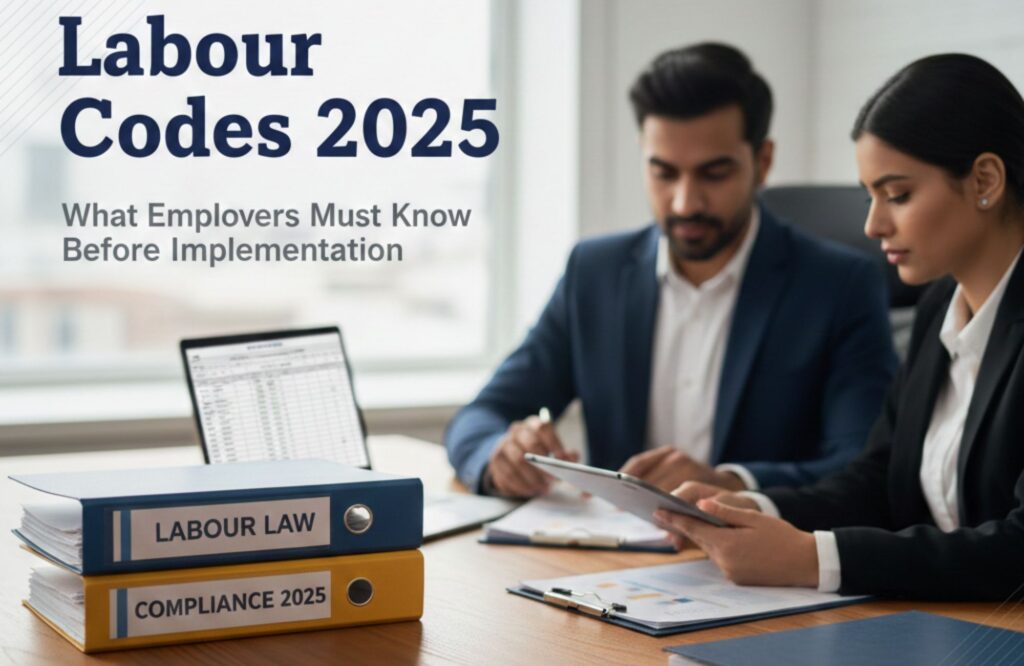Labour Codes 2025: What Employers Must Know Before Implementation
The recent announcement on November 21, 2025, regarding the implementation of India’s long-awaited four Labour Codes has created an important moment for every employer, HR head, and business leader. Although these Codes were drafted in 2020, their practical rollout has now begun, and organizations must clearly understand what happens next, how the transition works, and […]
Labour Codes 2025: What Employers Must Know Before Implementation Read More »











